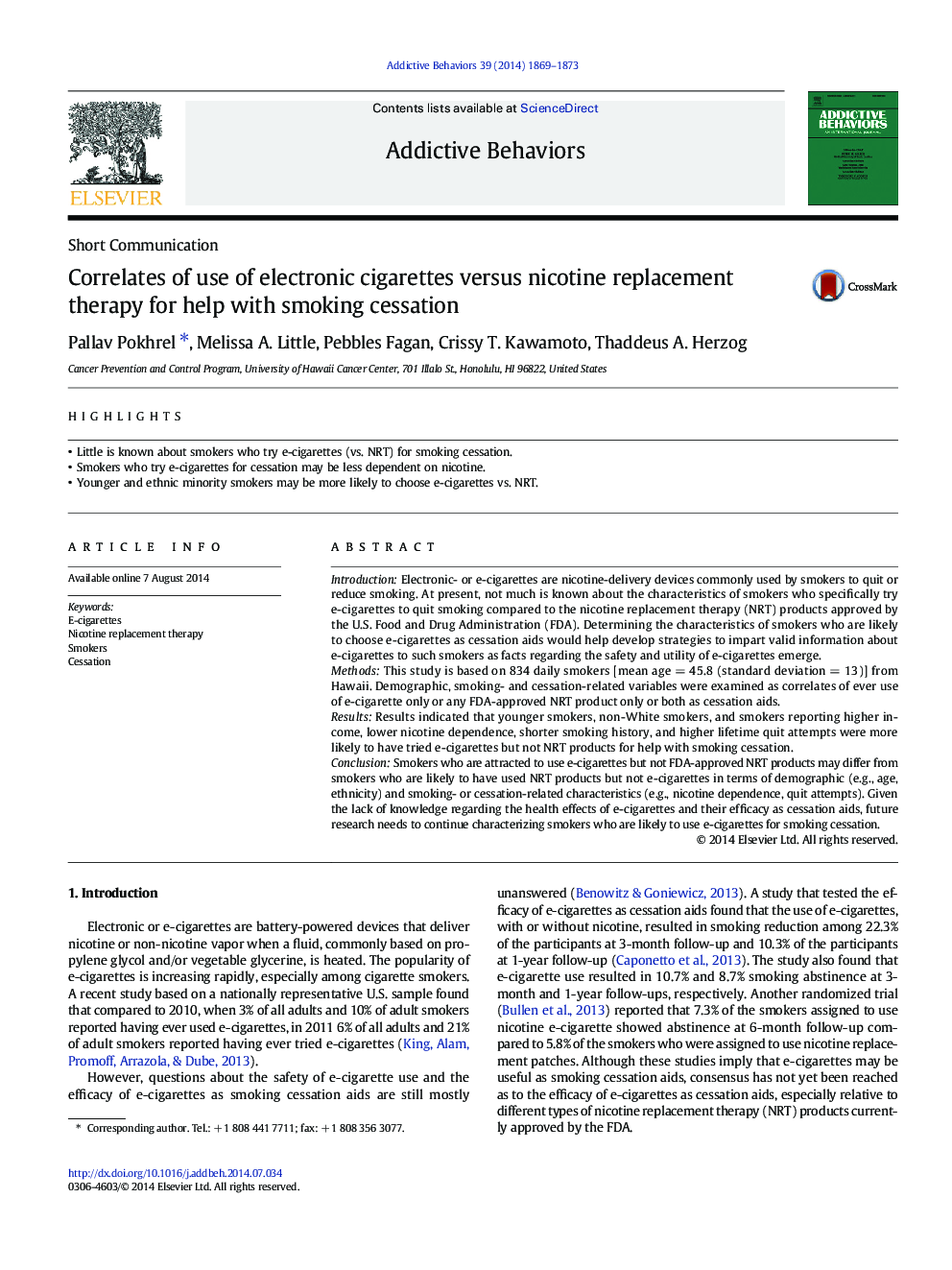| Article ID | Journal | Published Year | Pages | File Type |
|---|---|---|---|---|
| 898802 | Addictive Behaviors | 2014 | 5 Pages |
•Little is known about smokers who try e-cigarettes (vs. NRT) for smoking cessation.•Smokers who try e-cigarettes for cessation may be less dependent on nicotine.•Younger and ethnic minority smokers may be more likely to choose e-cigarettes vs. NRT.
IntroductionElectronic- or e-cigarettes are nicotine-delivery devices commonly used by smokers to quit or reduce smoking. At present, not much is known about the characteristics of smokers who specifically try e-cigarettes to quit smoking compared to the nicotine replacement therapy (NRT) products approved by the U.S. Food and Drug Administration (FDA). Determining the characteristics of smokers who are likely to choose e-cigarettes as cessation aids would help develop strategies to impart valid information about e-cigarettes to such smokers as facts regarding the safety and utility of e-cigarettes emerge.MethodsThis study is based on 834 daily smokers [mean age = 45.8 (standard deviation = 13)] from Hawaii. Demographic, smoking- and cessation-related variables were examined as correlates of ever use of e-cigarette only or any FDA-approved NRT product only or both as cessation aids.ResultsResults indicated that younger smokers, non-White smokers, and smokers reporting higher income, lower nicotine dependence, shorter smoking history, and higher lifetime quit attempts were more likely to have tried e-cigarettes but not NRT products for help with smoking cessation.ConclusionSmokers who are attracted to use e-cigarettes but not FDA-approved NRT products may differ from smokers who are likely to have used NRT products but not e-cigarettes in terms of demographic (e.g., age, ethnicity) and smoking- or cessation-related characteristics (e.g., nicotine dependence, quit attempts). Given the lack of knowledge regarding the health effects of e-cigarettes and their efficacy as cessation aids, future research needs to continue characterizing smokers who are likely to use e-cigarettes for smoking cessation.
